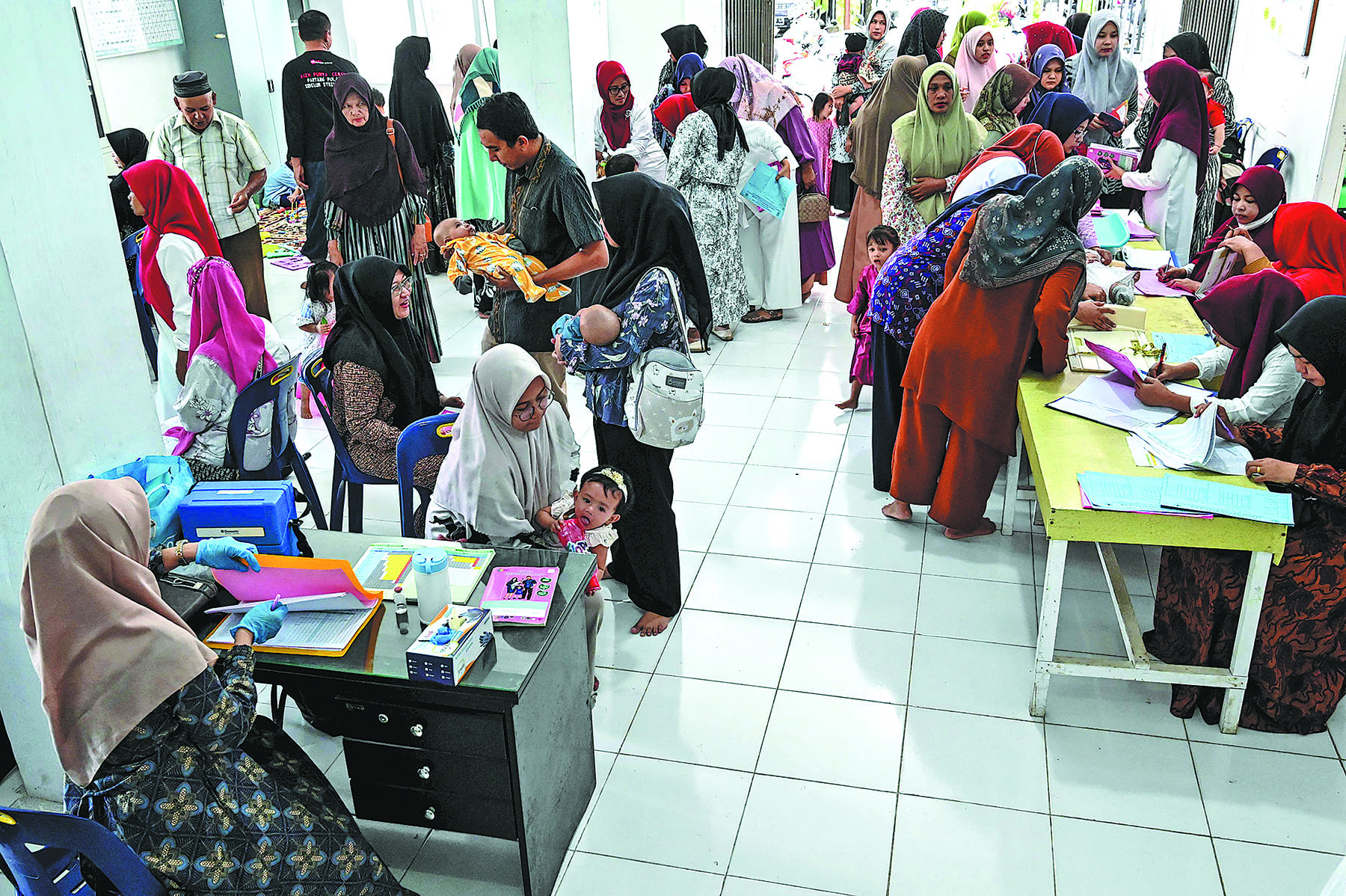
Indonesia will introduce free medical screenings next month as part of the country's effort to detect various diseases early and avoid preventable deaths, the government says.
Dedek Prayudi, a spokesman for the Presidential Communication Office, said people would be eligible for a free health screening on their birthday at Community health centers starting from February.
People can go to their nearest community health center to get the free health checkup, Dedek said. "It's easy and it would cost a lot of money if paid for from their own pocket."
President Prabowo Subianto wants people to stay healthy, Dedek said.
"His perspective on health is not just treating sick people, as promotive and preventive efforts are much more important."
The government has allocated 4.7 trillion rupiah ($290 million) for the program this year, which will cover 60 million people accessing the service.
The government says it hopes that over five years the number of recipients will increase to 200 million people.
ALSO READ: Indonesia to benefit from BRICS membership
The primary focus of the free health checkups, Dedek said, will be on screening people for noncommunicable diseases such as heart disease, stroke, cancer and diabetes.
According to socioeconomic registration figures from 2023, noncommunicable diseases are the biggest cause of death in Indonesia, with cardiovascular diseases accounting for 600,000 deaths a year.
"The government sees that as something serious that must be given special attention," Dedek said.
Apart from noncommunicable diseases, the health screenings will target specific diseases and medical conditions depending on a patient's age and gender for increased effectiveness and to reduce mortality and disability.
Children under 5 will be tested for preexisting conditions and birth defects, such as congenital hypothyroidism, a partial or complete loss of function of the thyroid gland that can disrupt growth, brain development and metabolism.
Older children aged up to 18 years will be checked for obesity, diabetes and oral health, while screenings for adults will test for common types of cancers based on gender.
Elderly people will be screened for geriatric medical conditions, in addition to cardiovascular diseases.
ALSO READ: Indonesian poverty at record low
Diah Satyani Saminarsih, founder of the Center for Indonesia's Strategic Development Initiatives, said the free checkups would be a good first step in tackling Indonesia's problem with noncommunicable diseases and that the initiative complemented the Health Ministry's focus on improving primary healthcare services.
However, she also urged the government to come up with a plan on how to follow up on each patient's medical findings.
"Let's say that a patient finds out she has cancer. Can the government guarantee that she will be able to receive treatment for life? Or in the case that (the costs) will be footed by the national health insurance program, what happens if the patient cannot pay the premium? These are key technical aspects the government must prepare beforehand."
Diah called on the Health Ministry to intensify awareness campaigns on the importance of medical checkups, saying that the reason behind people's hesitance to get regular screenings is not only cost, but also a lack of information and social stigma.


